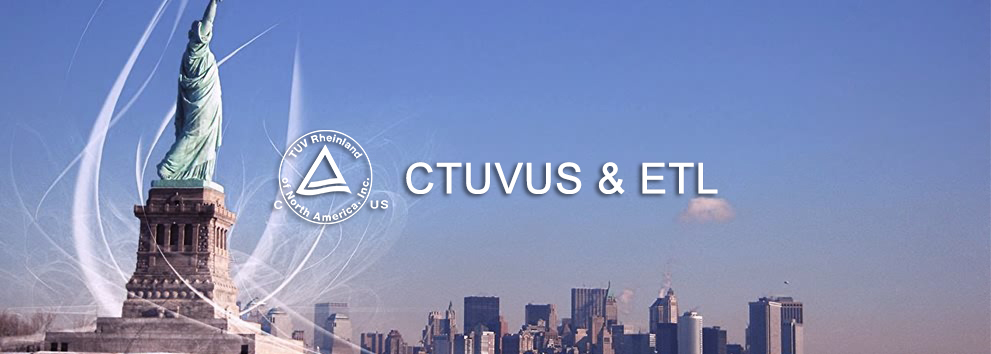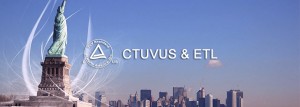North America CTIA
▍What is cTUVus & ETL CERTIFICATION?
OSHA (Occupational Safety and Health Administration), affiliated to US DOL (Department of Labor), demands that all products to be used in workplace must be tested and certificated by NRTL before being sold in market. Applicable testing standards include American National Standards Institute (ANSI) standards; American Society for Testing Material (ASTM) standards, Underwriter Laboratory (UL) standards, and factory mutual-recognition organization standards.
▍OSHA, NRTL, cTUVus, ETL and UL terms definition and relationship
OSHA: Abbreviation of Occupational Safety and Health Administration. It is an affiliation of US DOL (Department of Labor).
NRTL: Abbreviation of Nationally Recognized Testing Laboratory. It is in charge of lab accreditation. Up to now, there are 18 third-party testing institutions approved by NRTL, including TUV, ITS, MET and so forth.
cTUVus: Certification mark of TUVRh in North America.
ETL: Abbreviation of American Electrical Testing Laboratory. It was established in 1896 by Albert Einstein, the American inventor.
UL: Abbreviation of Underwriter Laboratories Inc.
▍Difference between cTUVus, ETL & UL
| Item | UL | cTUVus | ETL |
| Applied standard |
Same |
||
| Institution qualified for certificate receipt |
NRTL (Nationally approved laboratory) |
||
| Applied market |
North America (US and Canada) |
||
| Testing and certification institution | Underwriter Laboratory (China) Inc performs testing and issue project conclusion letter | MCM performs testing and TUV issues certificate | MCM performs testing and TUV issues certificate |
| Lead time | 5-12W | 2-3W | 2-3W |
| Application cost | Highest in peer | About 50~60% of UL cost | About 60~70% of UL cost |
| Advantage | An American local institution with good recognition in US and Canada | An International institution owns authority and offers reasonable price, also be recognized by North America | An American institution with good recognition in North America |
| Disadvantage |
|
Less brand recognition than that of UL | Less recognition than that of UL in certification of product component |
▍Why MCM?
● Soft Support from qualification and technology: As the witness testing lab of TUVRH and ITS in North American Certification, MCM is able to perform all types of testing and provide better service by exchanging technology face to face.
● Hard support from technology: MCM is equipped with all testing equipment for batteries of big-sized, small-sized and precision projects (i.e. electric mobile car, storage energy, and electronic digital products), able to provide overall battery testing and certification services in North America, covering standards UL2580, UL1973, UL2271, UL1642, UL2054 and so forth.
CTIA represents the Cellular Telecommunications and Internet Association, a non-profit private organization in the United States. CTIA provides an unbiased, independent and centralized product evaluation and certification for the wireless industry. Under this certification system, all consumer wireless products must pass the corresponding conformity test and meet the requirements of relevant standards before they can be sold in the North American communications market.The Certification Requirement for Battery system Compliance to IEEE1725 is applicable to single-cell and multi-cell batteries in parallel.Certification Requirement for Battery system Compliance to IEEE1625 is applicable to multi-cell batteries with core connection in series or parallel.Notice: both mobile phone battery and computer battery should choose the certification standard according to the above, instead of IEEE1725 for mobile phone and IEEE1625 for computer.MCM is a CTIA-accredited laboratory.MCM can provide a full set of steward type service including submitting application, testing, auditing and uploading data, etc.










